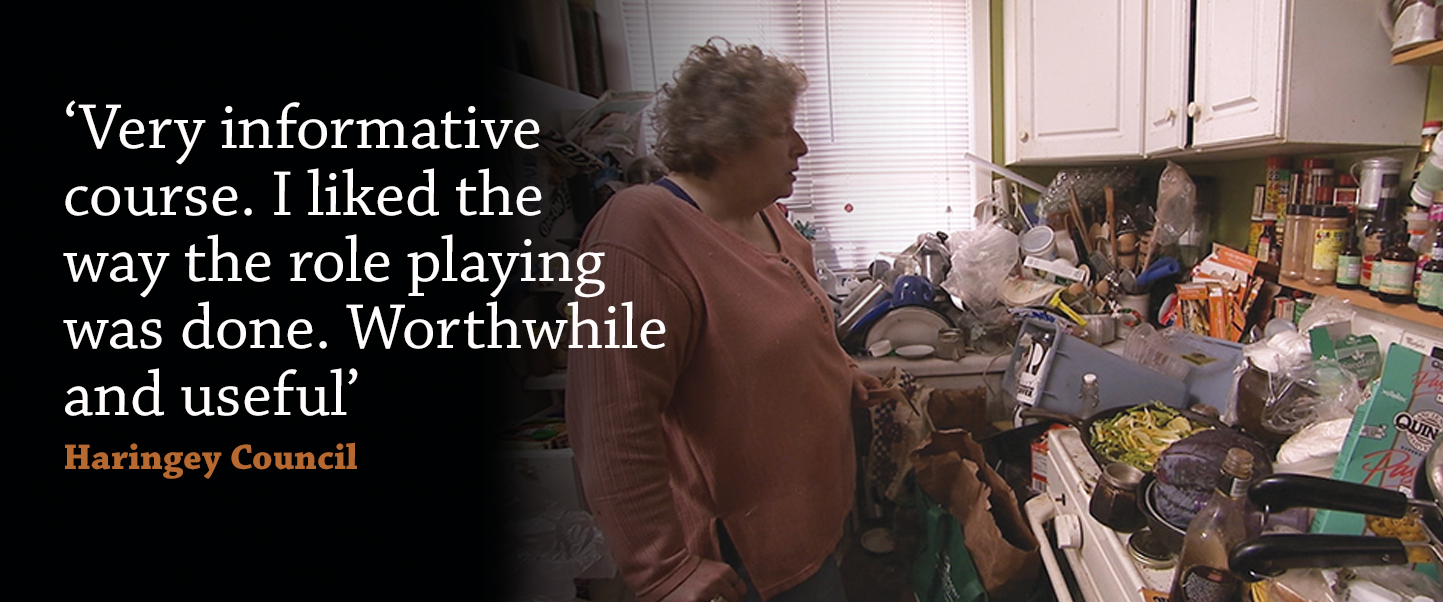Mental Health Training is one of the UK’s leading experts in the complex field of hoarding, self-neglect and abnormal psychology. All training is delivered by highly qualified experts. It’s information and advice you can trust.
 Our evidence-based hoarding and self-neglect training offers a clearer understanding of the associated disorders and behavioural vulnerabilities. It supports organisations and teams to better-understand the associated psychology, pathology and risks. It’s high quality training that will influence appropriate interventions, advocacy, supports and treatments and cleansing.
Our evidence-based hoarding and self-neglect training offers a clearer understanding of the associated disorders and behavioural vulnerabilities. It supports organisations and teams to better-understand the associated psychology, pathology and risks. It’s high quality training that will influence appropriate interventions, advocacy, supports and treatments and cleansing.
Please click the leaflet image to download a PDF overview of the training
Hoarding Behaviours & Self Neglect Training. The psychology, psychiatry, neurology and best-practice interventions.
This is an evidence-based training workshop that addresses the issues and challenges associated with hoarding behaviours and self-neglect science. It equips staff with the knowledge and skills essential to effective support and solutions.
Key areas addressed in the training:
- Understanding the psychology associated with hoarding behaviours
- The ability to recognise any psychiatric and neurocognitive symptoms that may be driving the behaviours. Hoarding is commonly associated with the following psychiatric syndromes:
- Hoarding Disorder (DSM5)
- Obsessive Compulsive Personality Disorder / Anankastic Personality Disorder (DSM5 / ICD11)
- Obsessive Compulsive Disorder (DSM5 / ICD11)
- Behavioural Variant Fronto-Temporal Dementia (BvFTD) / Diogenes Syndrome (DSM5 / ICD11)
- Brain injury and stroke
- Alcohol-related dementias (Wernicke-Korsakoffs)
- Risk assessments practices and screening tools
- The skills to improve motivation using principles within Motivational Interviewing strategies
- The skills to better-understand factors associated with incapacity and alerting safeguarding interventions and alerting other services (advocating for incapacitated clients / service users)
- The skills to manage de cluttering and improving longer term outcomes
- Working with primary care and CMHT services
- Capacity assessments
- The resistant nature / psychology of the client / service user (particularly interventions ‘backfiring’)
- Confusion with different agencies and services (that misunderstand the nature and diagnosis of the client / service user)
- Lack of skills and knowledge (how to effectively motivate the client / service user, manage the process of de-cluttering / cleansing
- The client / service user’s apparent resistance to engage or their potential indifference / apathy or lack of motivation
- Multi-Agency management factors
- Hoarding from the perspective of Environmental health & Possible Legal Remedies including The Public Health Act and other legislation relevant to the management of hoarding.
This evidence-based training is delivered by a psychology / psychiatry qualified facilitator. It offers a masterclass in hoarding and self-neglect science. The training is delivered in an accessible style that meets delegates’ learning / communication needs. We have extensive training experience within this sector and can support delegates with free post-training support on an informal basis.


